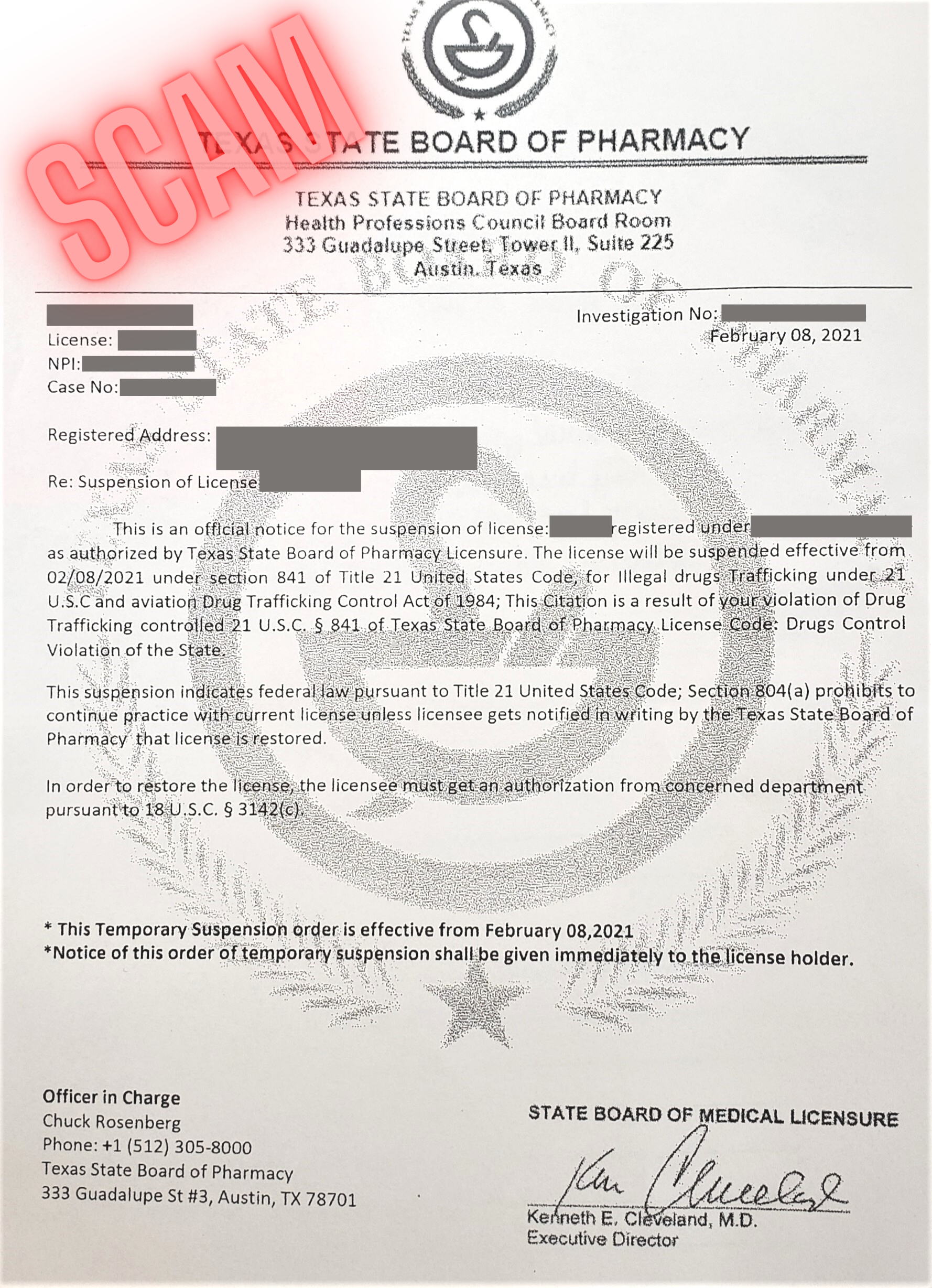Scam Alert:
Scam Fax/Email Example
Scams involving individuals impersonating state agency entities continue to be a serious issue. Scams are also becoming more sophisticated, which makes it even more important to be aware of and know how to recognize and protect yourself and your personal data from these types of scams.
Here’s an example of a scam fax received by a TSBP licensee.

(Click the example image to view full-size in a new tab.)
The scammer used a letterhead that appears official, and some “true” information about TSBP (phone number, address) to build the semblance of legitimacy in this document. The scammer also contacted the licensee by phone from a number appearing to be TSBP (known as "spoofing") to obtain the licensee’s personal information. Learn more about telephone spoofing and how to protect yourself against these calls from the Federal Communications Commission's (FCC) website here.
Luckily, the licensee contacted the TSBP office directly to confirm the legitimacy of the supposed disciplinary action. TSBP staff were able to confirm that the scammer was not a TSBP employee.
Remember that while it is possible that staff would follow up on an application you filed with TSBP, staff does NOT request your personal information in unsolicited phone calls or text messages. If you receive suspicious documentation from an entity appearing to be TSBP, contact us directly to confirm. Also remember that TSBP will NEVER request money or bank account information in a phone call or text. You may report information on scammers to the Texas Office of the Attorney General (OAG).
Learn more about scams involving impersonation of government entities from the Texas OAG here:
https://www.texasattorneygeneral.gov/news/releases/consumer-alert-ag-paxton-warns-scammers-impersonating-government-entities
Visit the Consumer Protection section of the Texas OAG to learn about common scams and how to report scammers here:
https://www.texasattorneygeneral.gov/consumer-protection/common-scams








